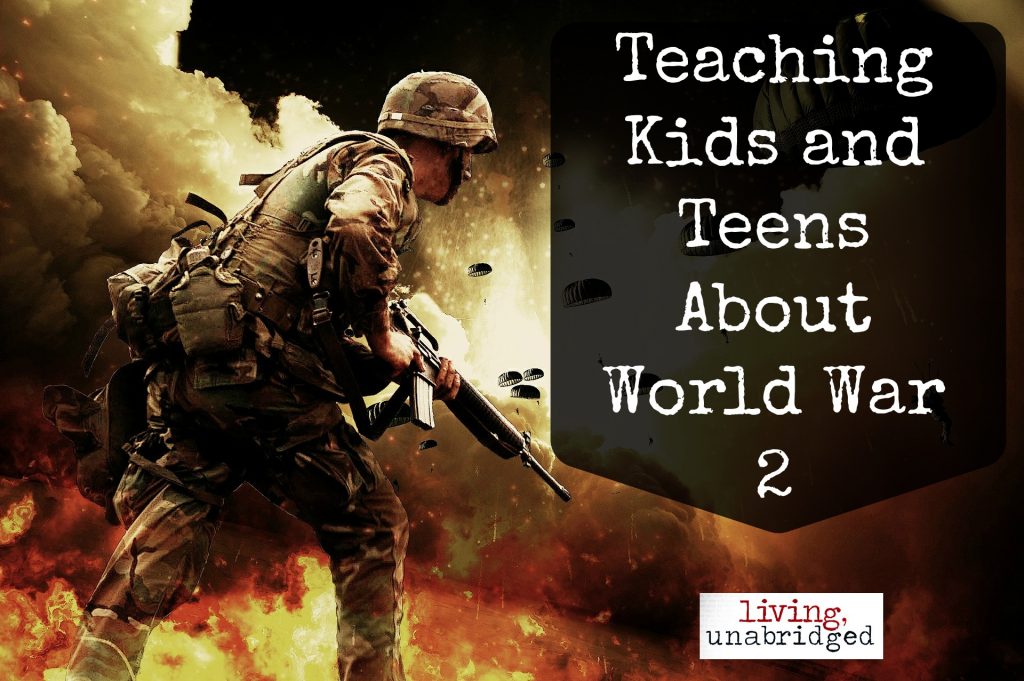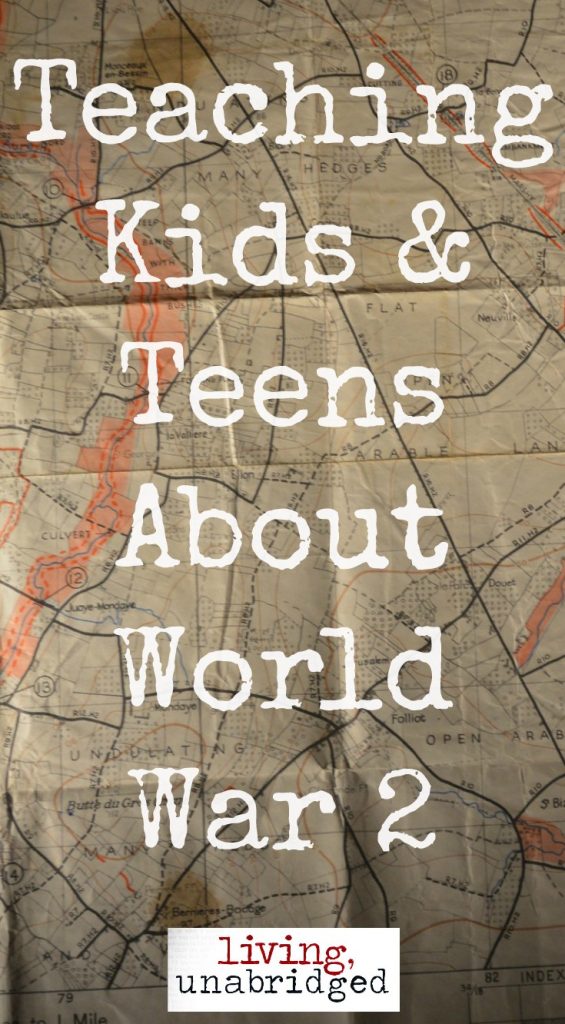As I worked on my World War 2 Books for Kids and Teens post, I considered how delicate it is to teach our children about such a traumatic thing. We all know that for each child we must consider individual needs and temperaments, but these are the first thoughts that come to my mind. (This is by no means an exhaustive list!)
 1. Do not skip this part of history, just because it's difficult.
1. Do not skip this part of history, just because it's difficult.
Do you want your child to learn about difficult things from other people? Are you in the habit of pushing difficult discussions aside?
I hope the answer is "No."
Children need parents to guide them through difficult topics. If we do not, then someone else will. (Correction: someone already is.)
2. Do not gloss over the degradations of Fascism or Communism.
I see a tendency to teach children about aspects of the war that weren't quite so bad. And that's understandable, particularly for younger ages.
But our children will have a skewed view of the conflict if they think that only the U.S. interned fellow citizens (we as adults know that the U.S. internment of the Japanese was nothing like the Death Camps of the Nazis, but children may not) or that the Soviet Union was allied with Great Britain and the U.S. and therefore part of the "good guys" (which is not the whole picture).
3. Do not dwell on one type of resource.
Such a wide variety of resources exist: fiction / nonfiction; picture books / books with no illustrations; maps; videos; era appropriate music; and so on. Vary your study. Too much focus on any one specific area is a recipe for overwhelm.
I have made myself a student of this era, but even I have to vary my reading. Too many heavy WW2 related stories without relief is not a balanced reading life.
And I caution you to be wise in your use of movies about this period. There are some that are appropriate for children, but many more should be saved for young adults. If you have a particularly sensitive child I would avoid disturbing visuals. Reading allows the reader (or listener) to supply the images. Movies fill in the blanks, sometimes more than we'd wish.
4. Do introduce real, living resources.
The "Greatest Generation" is rapidly leaving us. But there is still time for our children to meet and honor some living, breathing stories. Have your children begin with relatives in your own family, if there are still some living. (My own kids have enjoyed asking my grandparents, who were just children during the war, what they remembered about it.)
Books about and for children tend to serve as gentler introductions to heavy subjects. Children do not need to know all the horrific details to understand that being separated from your friends or family is traumatic.
Biographies of people who lived during this era are particularly valuable, because the war is only one part of their life story. World War 2 defined many lives, but it was not the only important moment in long lives well lived.
5. Do focus on heroes.
Irena Sendler, the people of Denmark, Sugihara, etc. When discussing the Holocaust with children it is important that they learn about those who stood against it.
I think it's important for children to realize that heroes come in different forms and take different actions. Sometimes resistance is quiet, sometimes it's flashy.
Sometimes small, ordinary actions become extraordinary given the circumstances.
But again, this is a balance. Because you have to know that something is bad to understand why opposing it is brave. Simple answers are acceptable at very young ages, but as a child matures, the conversations about this era necessarily becomes more nuanced. (For Christians, I highly recommend reading some good books about Dietrich Bonhoeffer. He directly wrestled with the nature of truth and how, when, and why Christians should oppose evil.)
A reminder for mothers of boys:
Many boys love games about battles or wars. They pretend play at being generals or cavalry officers or whatever.
Just because your son enjoys setting up toy soldiers and enacting massive battle scenes does not mean he is ready for the heavier themes of war. Being fascinated with abstract numbers of soldiers, tanks, ships, and planes is not the same thing as understanding that each of those numbers represents real people.
The time for understanding that will come. Meanwhile, rest assured that you're not raising a bad kid, just because he seems to "like" war stories or playacting.
What's your best piece of advice for teaching "difficult" history?



